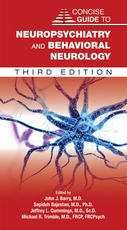Research Advances in Genetics and Genomics
Implications for Psychiatry
View Pricing
Description
Research Advances in Genetics and Genomics: Implications for Psychiatry introduces mental health professionals to exciting breakthroughs in endophenotypes, animal models, microarrays, and genetic mapping, as well as general strategies for identifying the genetic mechanisms of mental illnesses.
Uniquely valuable both as summary and signpost, this concise volume provides a fascinating overview of recent cutting-edge developments in the application of molecular genetics, genomics, and proteomics to the study of psychiatric populations.
By reading Research Advances in Genetics and Genomics, you will gain a better understanding of
- Psychiatric Genetics—Reviews and assesses the major research paradigms that have emerged in the field of psychiatric genetics over the several past decades, exploring the major conceptual and philosophical issues they pose and the value of their integration.
- Molecular Structure of Nucleic Acids—An overview of the double-helix discovery and provides a context for current endeavors, the original one-page April 1953 Nature paper by Watson and Crick, which sparked a revolution in the life sciences.
- Psychiatry in the Genomics Era—Posits that one of the most important consequences of genomics will be the development of individualized treatments that allow a clinician to tailor therapy on the basis of the unique genotype of each patient rather than on the mean responses of groups of unrelated patients.
- The Genomics Revolution—Details the implications of the genome for future medical practice, including the potential for developing methods and tools to better understand, treat, and prevent major mental disorders.
- The Endophenotype Concept in Psychiatry—Explains the etymology and strategy behind the use of endophenotypes in neuropsychiatric research and, more generally, in research on other diseases with complex genetics, such as schizophrenia.
- The Genes and Brains of Mice and Men—Shows why a detailed assessment of brain function in mice is so important for advancing psychiatric research in humans. Humans and mice share numerous features-in fact, for an estimated 99% of human genes a mouse version may be identified-of brain organization and behavioral responses to many pharmacological agents.
- Microarray Technology—Asserts that microarrays present a methodology for identifying genes or pathways for new and unique potential drug targets, determining premorbid diagnosis, predicting drug responsiveness for individual patients, and, eventually, initiating gene therapy and prevention strategies.
Meticulously referenced, this volume is exceptionally useful as a starting point for understanding the impact of genetics and genomics on psychiatry, serving to introduce psychiatrists, psychologists, neurologists, and geneticists to this exciting field.
Contents
- Contributors
- Foreword
- Introduction
- Chapter 1. Molecular Structure of Nucleic Acids: A Structure for Deoxyribose Nucleic Acid
- Chapter 2. Psychiatric Genetics: A Methodologic Critique
- Chapter 3. Psychiatry in the Genomics Era
- Chapter 4. Will the Genomics Revolution Revolutionize Psychiatry?
- Chapter 5. The Endophenotype Concept in Psychiatry: Etymology and Strategic Intentions
- Chapter 6. The Genes and Brains of Mice and Men
- Chapter 7. Microarray Technology: A Review of New Strategies to Discover Candidate Vulnerability Genes in Psychiatric Disorders
- Afterword
- Index
About the Authors
Nancy C. Andreasen, M.D., Ph.D., is Andrew H. Woods Chair of Psychiatry at The University of Iowa College of Medicine in Iowa City, Iowa; Director of The MIND Institute in Albuquerque, New Mexico; and Editor-in-Chief of The American Journal of Psychiatry.
Related Products
Carousel Control - items will scroll by tabbing through them, otherwise arrows can be used to scroll one item at a time








